Although they are civil servants in the education and training sector, they are not teachers and therefore do not receive preferential professional allowances, seniority allowances, etc. As a result, many school staff members have meager salaries and face significant living difficulties.
After working for 10 years, my salary is nearly 8 million VND.
With a bachelor's degree in physics education, after three attempts at the civil service exam (twice for a teaching position but failing), Ms. HN (37 years old) was hired as a school equipment manager at a high school in Tan Chau town (An Giang province) and has worked there for 10 years. Ms. HN said she also takes on the role of treasurer and helps collect health insurance fees from students at the beginning of the school year; she receives a monthly allowance of 25%. However, Ms. HN said that this allowance depends on the internal finances of each school. Many of her friends who are also school equipment managers at other schools do not receive this allowance; if they are in charge of school equipment for physics, chemistry, or biology, they receive a hazardous work allowance equal to 0.2 times their basic salary.
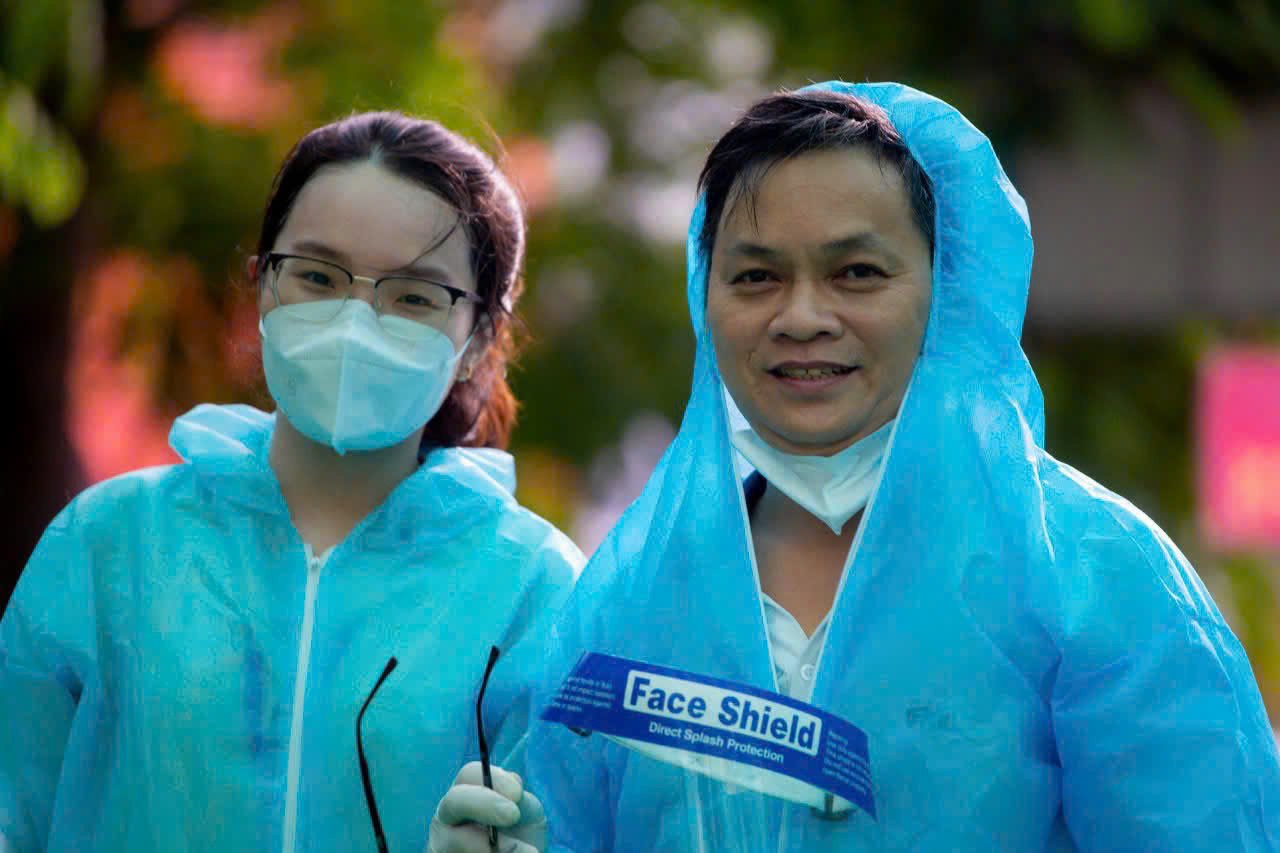
Dr. Huynh Trung Tuan, a school health worker in District 11 (Ho Chi Minh City), is on the front lines fighting the Covid-19 pandemic. School staff members do not receive the same allowances as teachers, so their lives remain difficult.
"When I first graduated and started working, my salary was over 2 million VND/month," Ms. HN said. After 10 years as a civil servant, her salary coefficient was 3.34; from July 1, 2024, with the increase in the base salary, her basic salary reached over 7.8 million VND. Including allowances, her total monthly income is approximately 9.5 million VND. Living 40 km away from the university, and with elderly parents to support, Ms. HN is unmarried, so this amount is just enough to support herself and send money home to care for her parents. In addition, she is also pursuing a second degree in accounting at a university.
"Many colleagues I know don't receive the 25% allowance; they only get a basic salary. For example, fresh graduates earn 4,914,000 VND/month, and after 10 years of work, it's around 7,800,000 VND/month (before social insurance deductions). Those with families and children who have to rent accommodation face significant difficulties. Many have to work in the fields or sell goods online outside of school hours to supplement their income. Many also wait for teacher recruitment drives to take the exams, hoping to become teachers with higher salaries due to professional incentives and seniority allowances. Some have even quit their jobs and switched to other professions because the salary is too low," Ms. HN recounted.
"Every job position in schools is important and requires effort. We hope the Ministry of Education and Training will pay attention, propose, and increase job allowances for school staff so that everyone can make a living from their profession," she said.
Ms. KC, a librarian at a high school in An Giang , also shared with a reporter from Thanh Nien Newspaper: "I've been in this profession for 15 years, and to date, the salary of librarians like me is the lowest compared to teachers who graduated at the same time as me, even though we work continuously from Monday to Friday and are always present in assigned activities. Teachers receive teaching allowances and seniority allowances, while librarians only receive their official salary. Librarians also receive a hazardous work allowance, but it's insignificant (from 0.1 to 0.2)."
According to the salary scale for Grade IV library staff, a fresh graduate has a salary coefficient of 1.86, equivalent to a salary of 4,352,400 VND/month. A Grade IV library staff member with 15 years of experience, if at level 6, will have a salary of 6,692,400 VND/month.
Ms. KC said that she is married with two children, and with this salary, life is very difficult, especially since her workplace is 17 km away from home. "My salary is only enough to support myself, with a little extra to buy milk for my children; the rest I have to rely on my parents and my husband. I really want to pursue higher education, get a university degree to be promoted from a Grade IV to a Grade III librarian, but the tuition fees are double my salary…," she said.
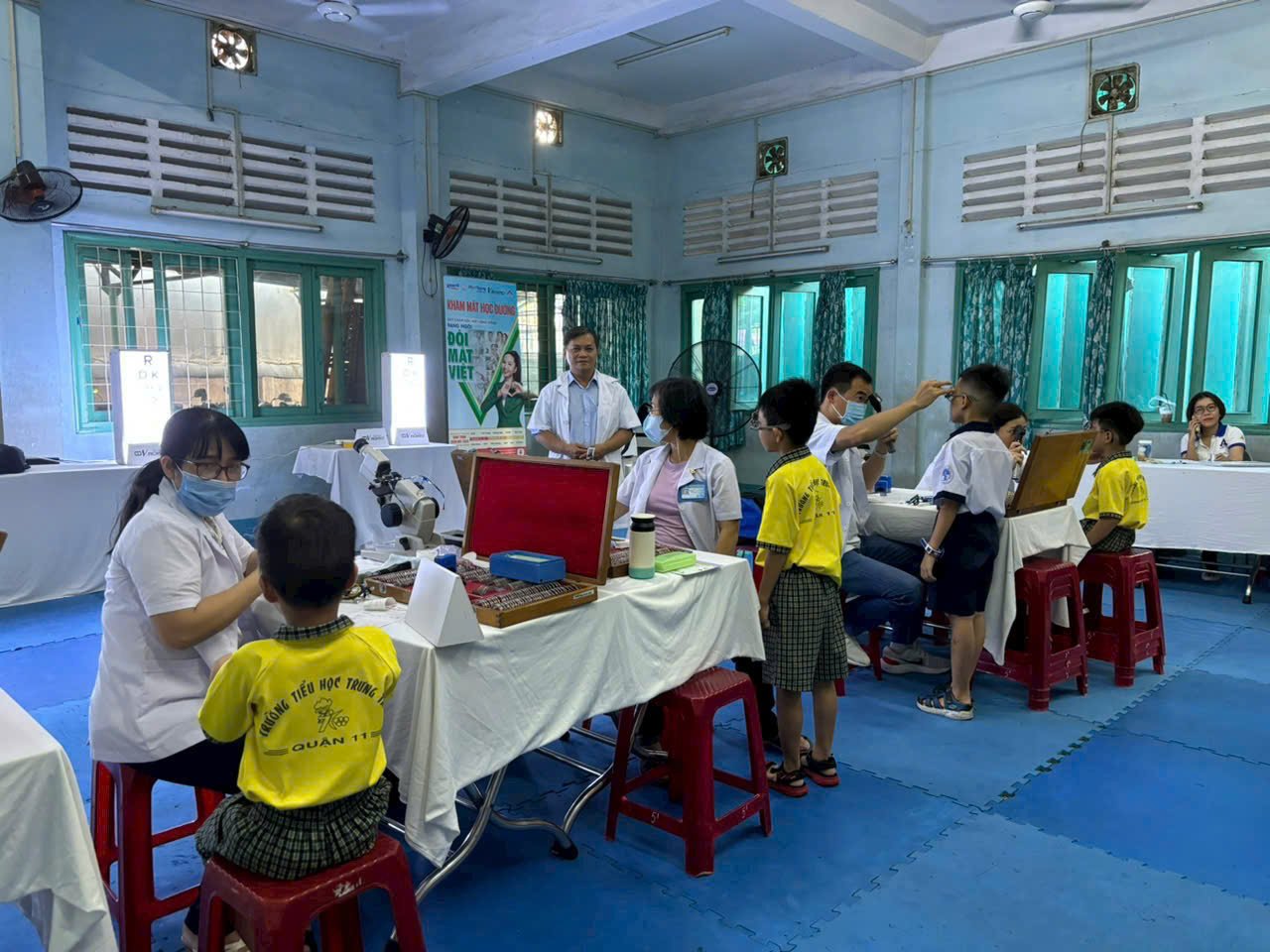
School health staff bear a significant responsibility in caring for and preventing diseases, ensuring the health of students, teachers, and school staff.
A heavy responsibility, expecting commensurate compensation.
Dr. Huynh Trung Tuan, a school health worker in District 11 (Ho Chi Minh City), said that school health workers bear great responsibility in caring for and preventing diseases, ensuring the health of students, teachers, and school staff. Especially during the Covid-19 pandemic, school health workers also participated on the front lines of the fight against the disease. Before students returned to school, school health workers were responsible for tasks such as disinfecting the environment, testing, isolating infected students, and preventing the spread of disease…
However, many schools still underestimate the role of school health staff, believing that this position can be taken on in addition to other duties. According to Dr. Tuan, this is a completely wrong notion. On weekdays, if the school has a canteen, the school health staff must be present from 5:30 AM to check the food supply process and ensure that the food meets hygiene and safety standards. During working hours, in addition to being on duty to handle accidents in the school, the health staff also inspects school safety, preventing potential hazards from equipment, supplies, trees, etc.; reminds students to sit in the correct posture to prevent spinal curvature and nearsightedness; and prevents dangerous play.
"Especially when accidents occur, such as students choking on food or toys, or falling and sustaining injuries at school, the dedicated school health staff – who are well-trained, have specialized knowledge, and receive regular training – will have the composure to provide quick and accurate first aid while waiting for the ambulance to arrive, ensuring the safety of the students' lives and minimizing future complications. For example, if a student chokes, if the school lacks the expertise to provide first aid and clear the airway, and instead rushes the child to the hospital, the critical 'golden hour' for saving their life will be missed. Or, if a student suffers a spinal injury from a fall but receives incorrect first aid, the injury will worsen, potentially leaving the student in a wheelchair for life. As the saying goes, 'train soldiers for three years to use them for one hour,' that's exactly what this means," Dr. Tuan said.
Currently, according to regulations, school health staff receive a maximum professional incentive allowance of 20% (the head of the unit will consider and decide based on the specifics of the work and revenue sources). School equipment and library staff, if entitled to a hazardous work allowance, will receive 0.1-0.2. Cashiers receive an allowance of 0.1. Accounting, clerical, and information technology staff do not receive allowances; they only receive salaries according to their rank and grade. Ho Chi Minh City has some specific incentives, such as Resolution 08, which provides additional income for civil servants and public employees, while other provinces and cities do not have this allowance, making life very difficult for school staff.
Therefore, Dr. Tuan emphasized the need to increase allowances for school health staff in particular and school staff in general. This is humane and helps attract talented personnel to the education and training sector, benefiting students and promoting the overall development of the sector. (to be continued)
I work extra as a cleaner to earn enough money to support my children.
With a medical assistant degree, Ms. L.D. is currently a contract healthcare worker at a junior high school in District 8, Ho Chi Minh City. Including her salary and allowances for her part-time work at the school,
At the canteen, Ms. L.D earns approximately 7.9 million VND per month, despite the heavy workload. To cover the expenses of her two children's education, she works as a cleaner in the evenings, earning an additional 4 million VND per month.
Ms. L.D. wishes for the district to organize a recruitment drive for the position of school health worker so that she can have the opportunity to be considered for the position and receive the special allowances and benefits for civil servants in Ho Chi Minh City.
Source: https://thanhnien.vn/luong-thap-nhan-vien-truong-hoc-mong-duoc-go-kho-185250101194324792.htm







![[Photo] Prime Minister Pham Minh Chinh attends the Conference on the Implementation of Tasks for 2026 of the Industry and Trade Sector](/_next/image?url=https%3A%2F%2Fvphoto.vietnam.vn%2Fthumb%2F1200x675%2Fvietnam%2Fresource%2FIMAGE%2F2025%2F12%2F19%2F1766159500458_ndo_br_shared31-jpg.webp&w=3840&q=75)
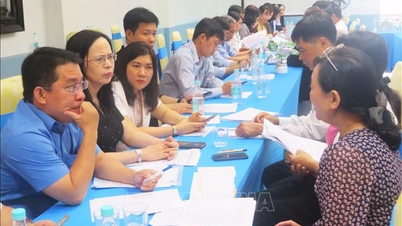



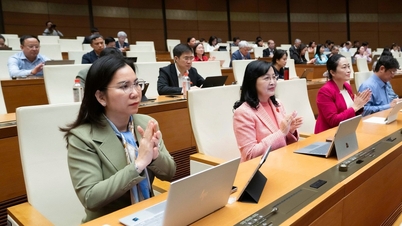

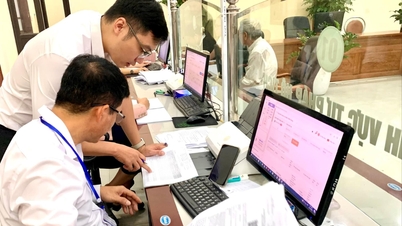

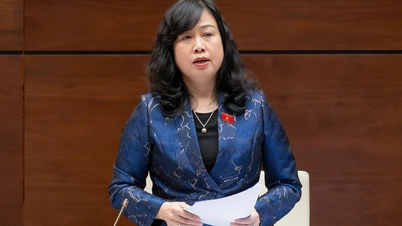





























































































Comment (0)